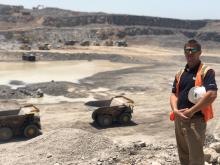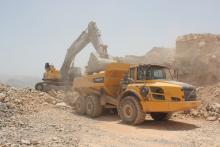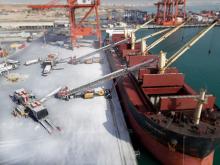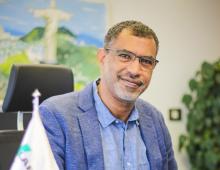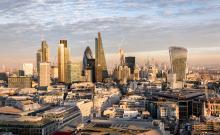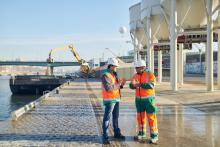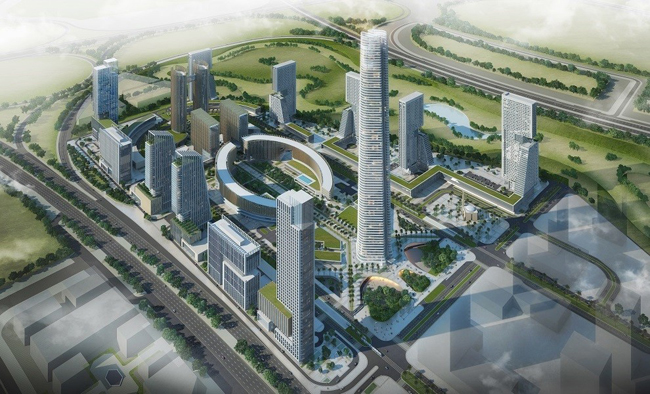
Building materials giant
The city - which has not yet been named and is referred to as the new administrative capital (NAC) – will become the country’s new administrative and financial centre with around 5 million inhabitants.
Since the beginning of the construction works LafargeHolcim has supported several of its projects, with a total contract value for LafargeHolcim of around CHF50mn (€44.08mn). Among the buildings using LafargeHolcim materials is the ‘Iconic Tower’, which is set to become the highest tower in Africa with a height of 385metres when completed by the end of 2020.
Miljan Gutovic, LafargeHolcim region head Middle East Africa, said: “We are delighted to contribute to Egypt’s new state-of-the-art capital. With these important project wins we continue LafargeHolcim’s successful history of supporting large-scale construction projects across Egypt. These projects improve millions of lives by providing better infrastructure and housing. We are confident that we will be able to provide further value-adding solutions for other landmark projects in the country.”
LafargeHolcim is providing a range of specialty solutions for several landmark buildings.
For the Iconic Tower, LafargeHolcim is using a sustainable cement solution with higher slag contents to meet the contractor’s specifications. The solution is unique to the Egyptian market and it provides an extended lifetime of more than 100 years due to its higher durability and strength, which are essential for a structure of this size and weight. LafargeHolcim was the exclusive cement supplier for the tower’s base construction work, and in February this year poured concrete nonstop for 48 hours, which the company says is the country’s longest-ever concrete pour. It adds that its production and logistics capabilities meant it could supply large quantities of cement in a short time, significantly cutting the time needed for the pour.
LafargeHolcim is also providing lightweight concrete solutions for the Egyptian Cabinet building, which will be part of the government district of the new city and will include the parliament, ministries and other state institutions. These lightweight solutions are bdesigned to deliver adequate strength and density values and minimise dead loads on the building. Additionally the company is supplying further solutions for several other ministry buildings.
To ensure materials are delivered reliably and on-time, a new concrete batching plant has been installed on-site. Another one with an expected production capacity of 300,000m3 is scheduled to open by the end of Q1. LafargeHolcim says its state-of-the-art local laboratory means it can test both its own solutions as well as construction materials provided by other suppliers.
The project for the new capital, which will also feature an airport and a theme park four times the size of Disneyland in California, was first announced in March 2015. The Egyptian government has said a new capital is needed to relive congestion in Cairo, which has been the national capital since 969AD and whose 22 million population is predicted to double over the next few decades.
The first officials are scheduled to move into government buildings in the new capital this year.
LafargeHolcim is engaged in several other major projects in Egypt that support the country’s growth agenda, including two new metro lines in Cairo, the new

